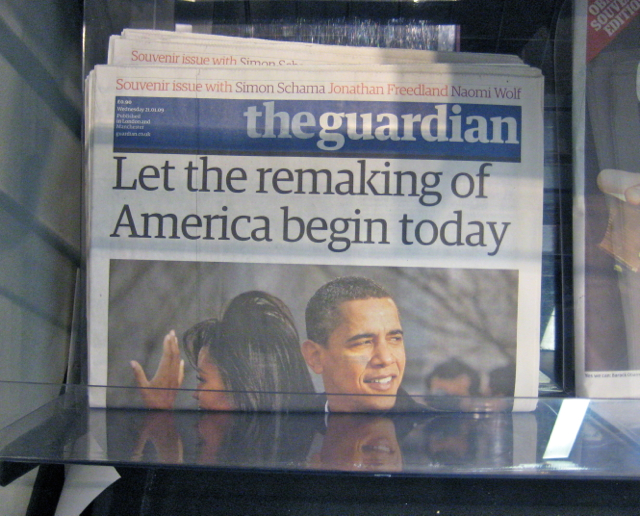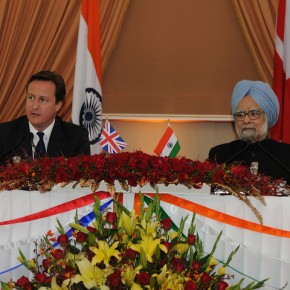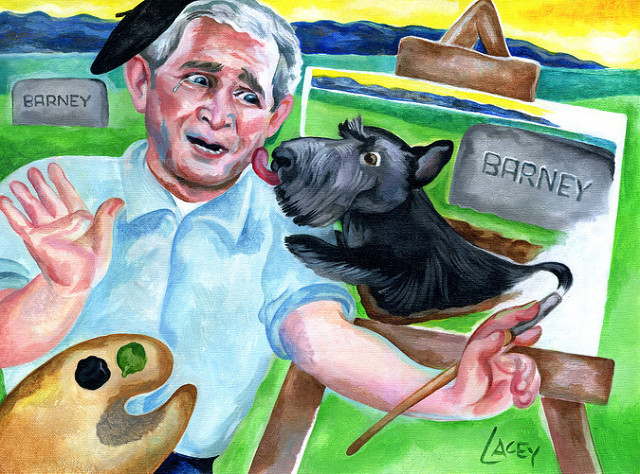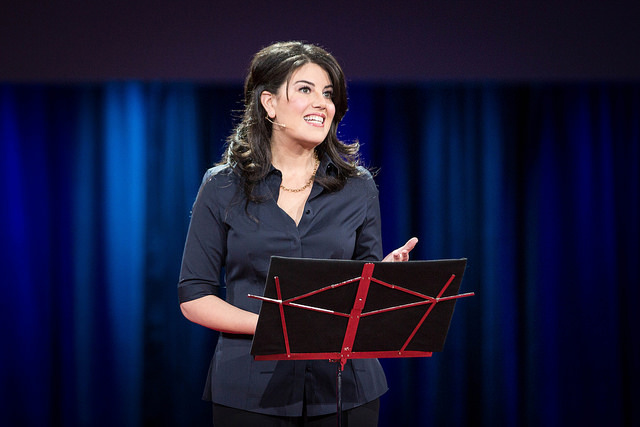Incomes Flat in Recovery, but Not for the 1%. The New York Times headline understated the case. According to economist Emmanuel Saez, during the first year of the economic “recovery,” the top 1% of America’s population saw its income rise by over 11%, while the rest of the US saw its income decline slightly.
Robert Reich, who was Secretary of Labor under Bill Clinton, reports that “The share of people of working age either who are working or looking for jobs also remains dismal – close to a 30-year low…And the long-term unemployed, about 40 percent of all jobless workers, remain trapped. Most have few if any job prospects, and their unemployment benefits have run out, or will run out shortly. Close to 20 million Americans remain unemployed or underemployed.”
These are grim facts. If there’s one idea that finds widespread agreement among US economists, it’s that the situation will not improve for most Americans any time soon.
It’s a familiar story, one that has remained consistent since the Clinton years. A Democratic White House has pursued a policy of spending reductions that would have been an easy fit with the Republicans of the 1980s. But today’s Republican Party has shifted so far to the right that they actually believe that Barack Obama is a high-spending liberal, rather than the middle of the road conservative his policies demonstrate him to be.
One wants to ask where the outrage is, but we’ve actually seen it, and a tragic tale it was. The concentration of American wealth upwards began in the 1970s, but has accelerated in the past few years. Plenty of people noticed and complained. When the economy finally crashed in 2008 under the weight of George W. Bush’s eight years of reckless spending and thoughtless tax cuts, two movements were spawned. They took markedly different paths.
The Occupy Movement organized along liberal and leftwing camaraderie, but the buy-in was paper-thin. The diverse anti-capitalist group protested the rampant greed and the growing impoverishment, both of the existing poor and the declining middle class. But without an overall political agenda, Occupy eventually shifted to a loose conglomeration of various groupings, old and new, each focusing on specific issues. It felt very 1960s, in that regard. We should have known better.
Occupy had some effect on Obama and the Democrats, largely in the field of rhetoric during election campaigns. They acknowledged it’s discursive impact, in terms of domestic political discussions, about the market, and social justice. But it did not become a political force, for a variety of reasons. Unfortunately, the other movement did.
That would be the Tea Party. Like Occupy, the Tea Party drew from various sources including Libertarians, radical conservatives and American-style populists. But there was common ground for a broad political movement there. The Tea Party coalesced around causes such as lower taxes, massive cuts in government spending, and uncompromising opposition to Barack Obama.
There’s some irony in the fact that the Tea Party, many of whose adherents found little to love in either of the political parties, was so quickly bought off and made into the dominant force in the Republican Party. Significant extremist organizations such as FreedomWorks and Americans for Prosperity threw their weight behind the Tea Party. More mainstream right-wing organizations like the American Enterprise Institute took notice and took them seriously, granting them an air of legitimacy on the American right. The billionaire Koch Brothers led the way on funding the Tea Party backing their candidates in congressional races, many of which would not have been won without such support.

The irony lies in the fact that many parts of the Tea Party have just as much resentment toward the ultra-rich and corporate America as their counterparts on the far left. Their free market values clash with their perception that big government can be manipulated by the wealthy, and big business, to their advantage. But the anti-intellectual trend that culminated with one of their heroes, Sarah Palin running for Vice President left them vulnerable to this sort of subversion.
These are obvious differences between the Tea Party and the radical elements within Occupy, as well as those leftwing organizations that chose to stay outside the Occupy movement. Perhaps more fundamental is the much stronger divide between the radical left and mainstream liberalism. Where the Tea Party was able to coalesce around the lowest common denominator among their various groupings, the left values its diversity and came together only on narrow spaces where its constitutents could agree.
We can see the same sort of dynamic in the tension that exists between liberals and leftists in political parties. Despite the fact that many leading liberals find the Democratic Party frustrating, and not sufficiently reflective of their values, the smaller left wing parties have yet to find a way to capitalize on this and create a viable alternative. They have neither found a language to draw disaffected liberals into their fold. Nor have they found a way to have any influence on the Democrats, either.
A big part of the reason is that liberals have proven much less open to radicalism than many conservatives. Ideologically, they’re more conservative. Liberals live in almost constant fear of appearing too leftwing, as though they will be judged by a non-existent center, for being extremists, while the new Republicans use Tea Party populism to argue against taxing the richest Americans. That’s a remarkable disjuncture. Indeed, long before the Tea Party, the Republicans were willing to push the boundaries of what they would call their ‘mainstream’, without any deference to establishment political mores.
In the 1980s, the so-called “Moral Majority” augured a Republican shift towards toward an extremist social agenda, culminating in Newt Gingrich’s Tea Party-like manifesto, Contract With America, in 1994. By contrast, the Obama and Clinton Administrations, and various Democratic majorities in Congress over the years, have rushed to the center and have generally appeared more akin to Dwight Eisenhower or Richard Nixon than to Jimmy Carter or Franklin Delano Roosevelt.
Like many of us, I’ve spent a lot of time in both the liberal and more radical left worlds, and would not even try to guess which one I belong to. The fact is, the values in both are largely the same. If we all have one problem, it’s that we value our education and experience, and this leads us to choose certain tactics as superior. It can also paralyze us with fear. Whether that’s due to anxieties about co-optation or concerns about appearing too radical, there’s too much fear.
Somehow, this divide needs to be bridged. While the left celebrates its diversity and the various good works we all do, the right is shifting the center dramatically rightward, still. Addressing the sort of economic problems we face here is going to take a lot more than raising the federal minimum wage so that it is only slightly below the poverty line for full time workers. Yet that was Obama’s big and controversial promise in his state of the union address.
As US politics grow more absurd, Americans will not be suffering alone. Our economy affects the economies of the rest of the world, and so does our burgeoning social chaos. Historically, the US left has had its moments, whether that was workers risking their lives to organize in the early 20th century, or the mass movements, which inspired many around the world for civil, women’s and LGBT rights in the latter part of that century.
But today, the left is divided and weak and facing yet another historic rightwing surge. No one is going to help us. We need to build real mass movements, unite the liberals and the more radical groups (which are quite likely far more numerous than one might think, given the level of discontent in the Democratic Party) and work to mobilize what major funding we can. Our side may not have so many Koch Brothers or Sheldon Adelsons financing us. However, we do have some large institutions and even some George Soroses of our own.
Or, we can continue to harp on our differences, and watch lunatic extremists bring back the days of the robber barons. Unfortunately, this time, they will be controlling not just a wealthy and powerful country, but a country who, despite its decline in recent years, remains the world’s sole military superpower. Think about what that combination entails, to a country that imagines itself as a democracy. The choice is ours.
Photographs courtesy of Joel Schalit






Actually, Mitchell, in America the Left is strong. In fact the Left is stronger in America than in the rest of the world. It’s only in the North American subcontinent – Canada and the USA, 2 out of 35 countries in this continent – where the Left is weak. And one of the main reasons why the Left is weak here is that Obama killed hope. As long as the Republicans were in power, we had hope of a better future after the departure of the Republicans. Then along came Obama and nothing changed. He killed hope in North America. But I don’t blame him. I blame us. Before the election we completely ignored what Obama had said and written. Instead we assumed that because he is Black, he would improve our lives. And we were shocked when we learned that he’s no less nationalistic, militaristic, oligarchic and racist than any Republican.
One more thing: regarding “I’ve spent a lot of time in both the liberal and more radical left worlds, and would not even try to guess which one I belong to. The fact is, the values in both are largely the same.” I disagree. I think the differences are clear: for the liberal Left, the top priority is equality for women and sexual minorities; for the radical Left, the top priority is redistribution of wealth. (The 2 are not mutually exclusive; it’s a question of what gets priority)
@Mark – you are comparing apples & oranges. Plitnick was referring to values, and you compared priorities. I agree with both of you: liberal & progressive values are largely the same, but prioritize them differently.
I think the progressives support social equality but oppose any critique of capitalism. Compare Krugman’s excuses for capitalism v Richard Wolff’s critiques of capitalism.
And the economy did not crash soley because of Bush 43. Clinton and the Democrats supported the abolition of the Glass-Steagall Act, and Carter and the Democrats supported abolition of federal usury laws and favored reducing regulations of mortgages (see the Savings and Loan crash of the 80s).
Liberals are afraid of appearing to Leftwing because they are not Leftwing at all. they are the political Center in the US.
A big group hug among liberals and anticapitalists? Is that your suggestion?
I do agree with your critique of Occupy; it lacked focus.
“liberals have proven much less open to radicalism than many conservatives”
As one who came of age in the U.S. in the 60s I could never have imagined such a state of affairs.
“Liberals live in almost constant fear of appearing too leftwing, as though they will be judged by a non-existent center”
Yeah, they’ve let that Overton window slide past them.
“the left is divided”
Guilty as charged. I couldn’t even bring myself to vote for Obama.